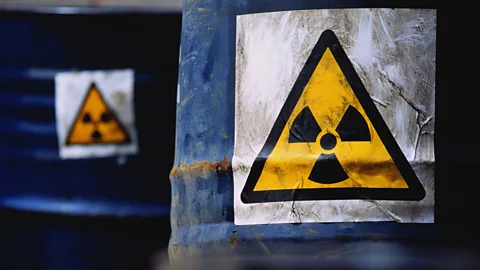Is radiation really as bad as we think?
 Getty Images
Getty ImagesThe best of the week’s long reads in science and technology, including data versus intuition, and whether radiation is quite as dangerous as we think.
Memory | What stays when everything goes
Tests on patients with Alzheimer’s show that musical memory is distinct from general memory, and lasts longer. “Areas crucial to musical memory are among the least affected by advanced Alzheimer’s. Music is remembered implicitly, akin to remembering a complex series of movements, rather than as a discrete entity or specific countable events.” (Robert Turner and Jorn-Henrik Jacobsen, OUP Blog, 825 words)
The manager of the Manhattan Project, Major General Leslie Groves, was an “abrasive and sarcastic SOB”. But he was a genius of logistics and organisation: “We never had much trouble with ‘red tape’, probably because whenever we encountered potential difficulties, a competent officer was always sent immediately to the trouble spot with orders and authority to resolve the problem.” (Seamus Sweeney, The Dabbler, 2000 words)
Genetics | Are GMOs safe?
Yes. “I’ve spent much of the past year digging into the evidence. Here’s what I’ve learned. The deeper you dig, the more fraud you find in the case against GMOs. The people who tell you that Monsanto is hiding the truth are themselves hiding evidence that their own allegations about GMOs are false. They’re counting on you to feel overwhelmed by the science and to accept, as a gut presumption, their message of distrust.” (William Saletan, Slate, 10,000 words)
Eugenics | Smart babies are inevitable
Most Americans say they oppose the use of genetic engineering to produce smarter babies. But most Americans will change their minds once the technology is perfected and widely used on Chinese, or Japanese, or Russian babies. The American rich will lead the way, going abroad if the law blocks them at home, at which point the withholding of higher intelligence from poorer children will become indefensible. (Eugene Volokh, Washington Post, 1,160 words)
Radiation | Is your fear of radiation irrational?
Yes. Nobody died from the Fukushima meltdown after the Japanese tsunami. Premature deaths from Chernobyl could have been largely prevented by better public health measures. Pollution from coal is much more harmful to health than radiation from nuclear power; small doses of radiation may well be beneficial. Children of survivors of the Hiroshima and Nagasaki nuclear bombs show no increased rate of cancer. (Geoff Watts, Mosaic, 3,670 words)
Data | The data or the hunch
How to strike the right balance between data and intuition in decision-making. Data seems the way to go; but data can only go so far. Data-driven decision-making relies on intuitions about what to measure and why; it tends to overweight things because they are measurable; and data sees only the past, the future involves guesswork. Intuition is John Hammond taking a shine to the kid in the cap, and finding Bob Dylan. (Ian Leslie, Intelligent Life, 5,100 words)
For more articles worth reading, visit The Browser. If you would like to comment on this, or anything else you have seen on Future, head over to our Facebook or Google+ page, or message us on Twitter.
